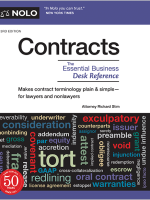If you’ve ever taken out a loan, you have probably signed a promissory note. A promissory note defined is a legal document that is a promise of payment. Promissory notes are often used in financial services where one person (the borrower) takes out a loan and signs a document making a promise to repay the loan to the lender within a certain amount of time. Here, we’ll examine what is a promissory note and discuss how they relate to real estate.
Promissory Notes and Real Estate
You can think of a promissory note as a loan document or a formal IOU that plays an important role in the real estate closing/settlement process. When buying a house, you will most likely take out a mortgage. The mortgage is the contract that allows you to borrow money from a lender and gives the lender a security interest in your home in case the loan is not repaid. However, the mortgage does not actually state that you will repay the loan. This is where the promissory notes come in. The promissory note supplements the mortgage and is what you sign actually promising to pay back the loan.
Your lender will hold the promissory note until the loan has been repaid. At that time, the lender will cancel the note and return the original to you, the borrower.
One major difference between a promissory note and mortgage is that while mortgages are recorded as part of the public land records, promissory notes are generally unrecorded. Whether your promissory note will be recorded depends on your state laws.
How to Write a Promissory Note
You can write your own promissory note as they are pretty straightforward; however, you might want to hire a lawyer to make sure everything is correct since a large amount of money is involved. A lawyer can also help you by explaining in detail what is a promissory note. If you decide to write your own, keep in mind that every state has its own guidelines about what to include in a note, so you should verify the laws of your state before you write one. The promissory note should include all the terms of the loan, including:
- Names of Parties. You’ll want to include the names of both the borrower and lender. It would also be a good idea to include each party’s address.
- Loan Amount. The note should include the principal amount of the loan and what collateral, if any, is being used.
- Dates.List the date the note goes into effect, when the first payment is due, and when the note ends.
- Interest Rate. State law will determine how much interest may be applied to your loan. Your promissory note should direct how the interest will be calculated.
- Repayment Terms. The note should detail which type of repayment plan applies to your loan, such as by installment, on a specific date, or a lump sum.
- Signatures of Both Parties. The borrower and lender should both sign, or the note may not be legally binding.
On occasion, you might find it necessary to change the terms of your note because of changes in interest rates, repayment terms, or how long you want your loan to continue. All the changes should be done in writing and have both parties’ signatures. An easy way to make changes is to draft a new document as an amendment to the note. The amendment should reference the original promissory note so that all the original terms still apply.
What Makes a Promissory Note Invalid?
An invalid promissory note could become a messy issue for both borrower and lender and you could wind up in court. One of the most common reasons for declaring a promissory note invalid is because the parties did not sign the note, especially the borrower. Or, if someone did sign the note, it was a party who was not allowed to sign. For example, if someone, like a relative, who did not take out the loan for the mortgage signs the note, it would be deemed invalid because the legal borrower did not sign. A great way to avoid this mishap is to include a notary in your executing process.
In addition, if the promissory note contains unclear or ambiguous clauses, or unfair terms, the note might be deemed invalid. An unfair term might be if the note includes an interest rate of 25% but your state only allows for a 15% interest rate.
Another reason for an invalid promissory note is if changes were made to the note without the authorization and signature of both parties. Finally, if the original promissory note is lost and there is no way to prove its legitimacy, it could be declared invalid.
Ready to Write a Promissory Note? Talk to a Lawyer
Now that you know what is a promissory note and how they work, you may want to consider talking to a lawyer to get more information. To get started, get online help here.


